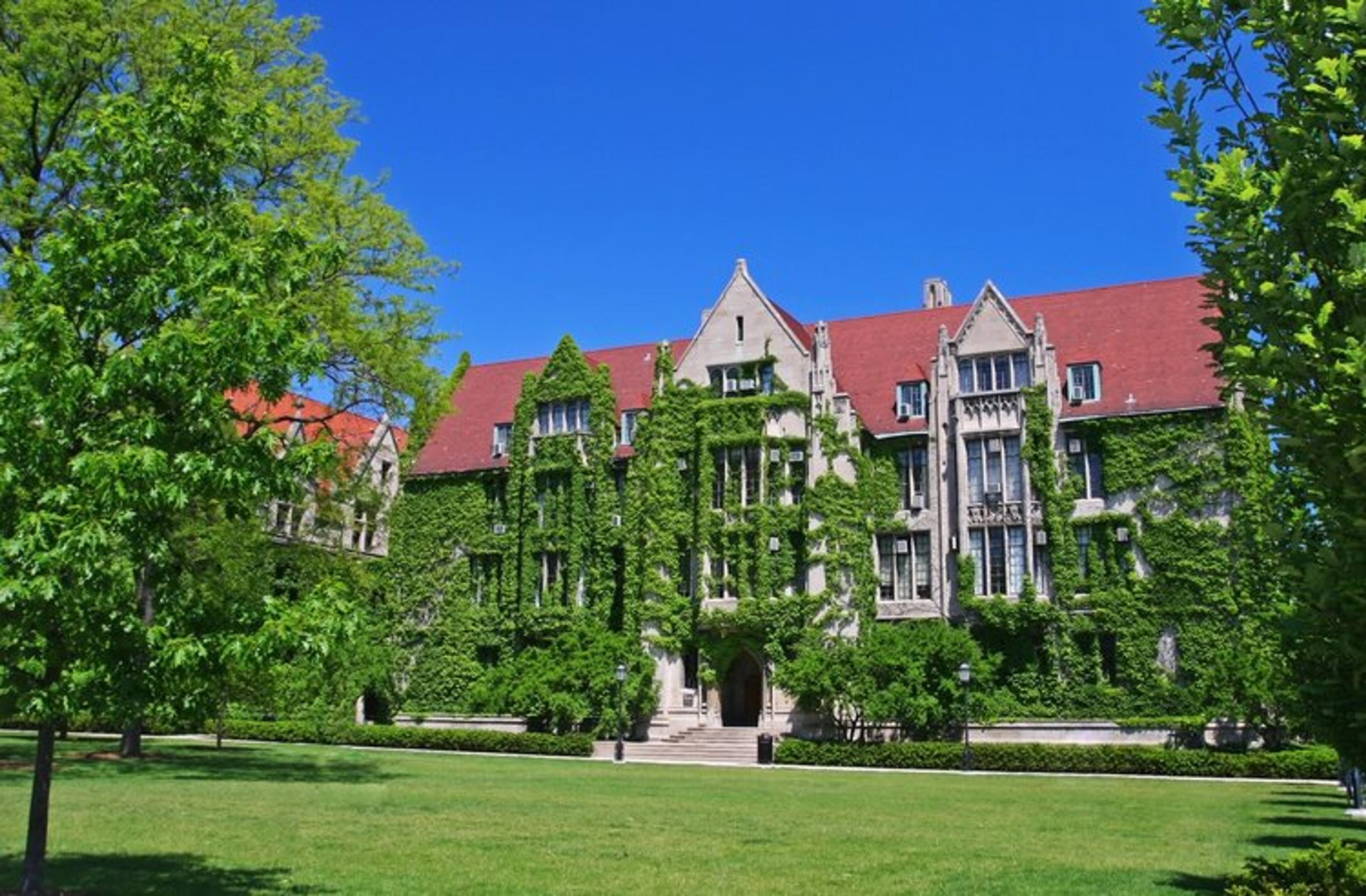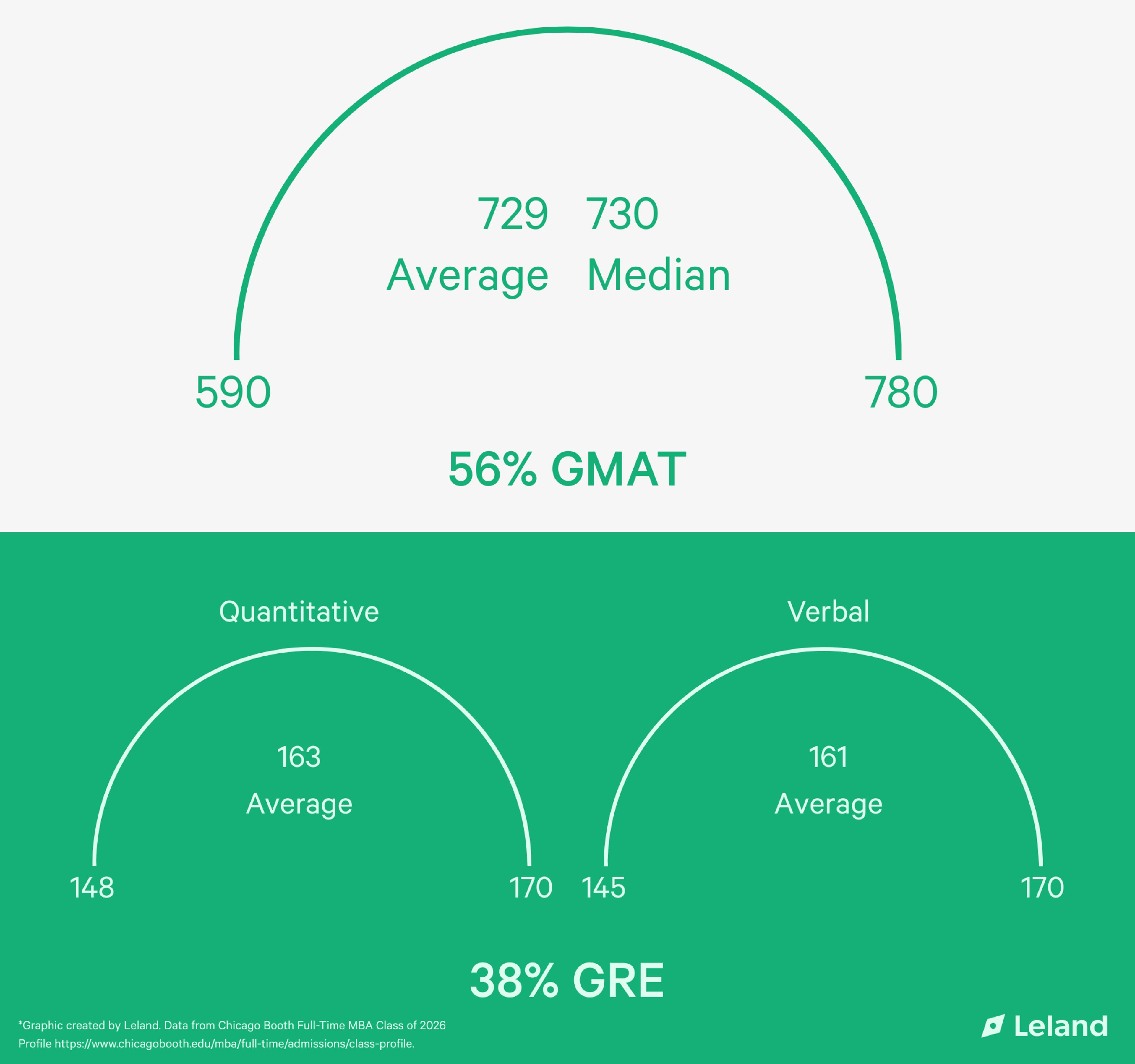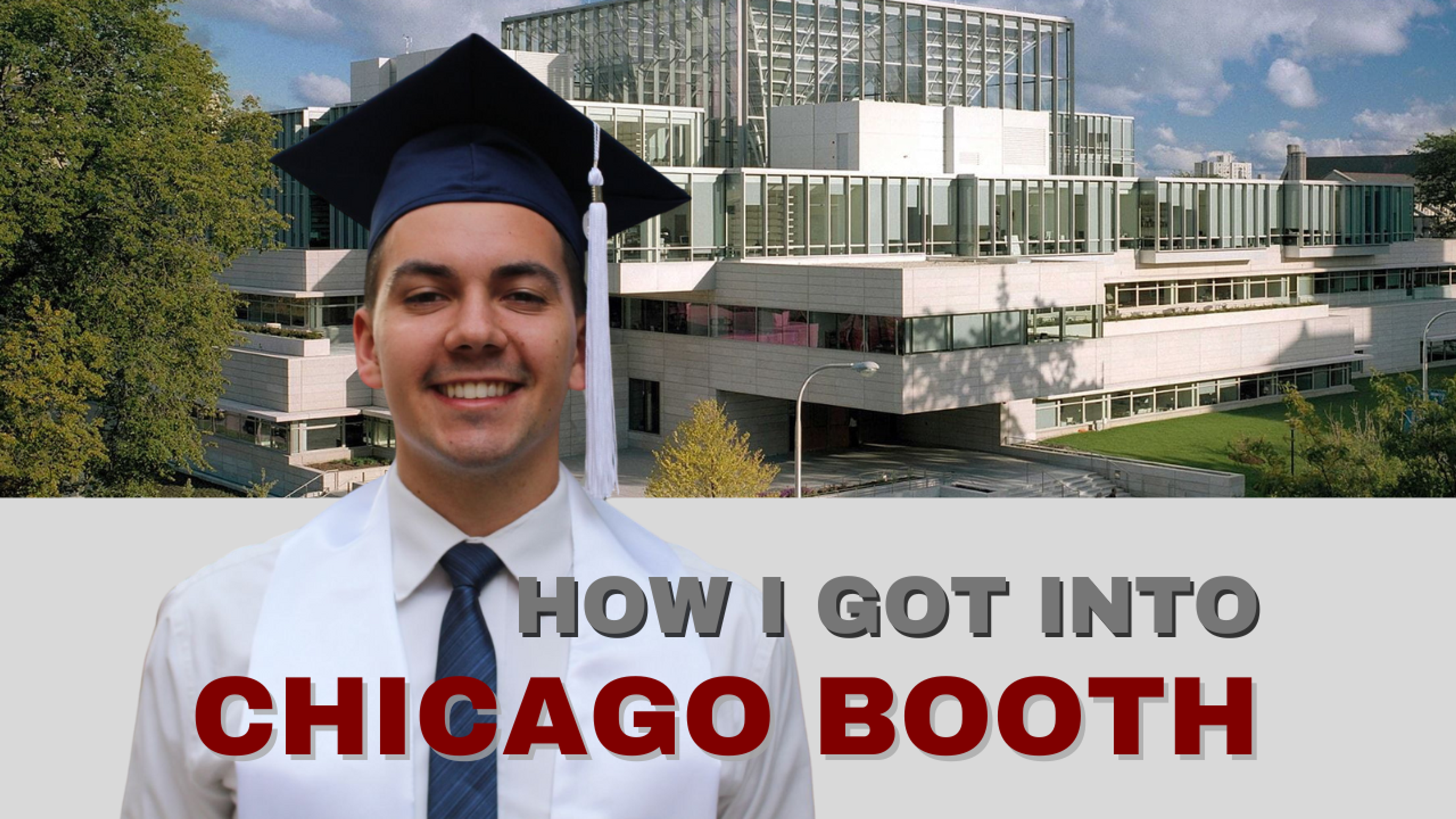UChicago Booth Deferred MBA: Deadlines, Acceptance Rate, & How to Get In (2026)
An overview of the deferred enrollment MBA program at the University of Chicago's Booth School of Business, including who Booth is looking for, eligibility info, application details, and more.
Posted October 7, 2025

Table of Contents
If you are an undergraduate student or in your final year of a master’s program, the Booth Deferred MBA, formally called the Chicago Booth Scholars Program, allows you to secure admission to one of the world’s top business schools before beginning your career. Instead of waiting until you have several years of work experience, you can apply during your senior year, gain early admission, and then spend two to five years working full-time before enrolling in the MBA program.
This guide covers the deadlines, acceptance rate, admissions process, and strategies that will help your application stand out.
What Is It?
Understanding the Chicago Booth Scholars Program
The Booth Scholars Program is the deferred enrollment MBA at the University of Chicago. Students apply in their senior year of undergrad and may defer admission for two to five years in order to gain professional work experience. This flexibility allows students to explore different career paths without worrying about reapplying to business school. If students later find a job they wish to keep, Booth also offers the option of enrolling in the part-time program.
During the deferment period, admitted students have access to Booth’s resources, events, tailored programming, and the extensive Booth alumni network.
Booth is consistently ranked among the top business schools worldwide. Watch this video to learn what makes Booth unique:
Eligibility
Booth’s eligibility standards are similar to other deferred MBA programs. Applicants must be in their final year of college or the final year of an advanced degree that began immediately after undergraduate studies. To be eligible, students must graduate between the previous October and September before the application round.
Applicants must prepare the following: unofficial transcripts from all post-secondary institutions, two recommendation letters, a resume, GMAT or GRE scores, and responses to short-answer and essay questions. International applicants who did not attend an English-instruction undergraduate program must also submit TOEFL, PTE, or IELTS scores.
Who is Booth Looking For?
The Booth admissions committee is interested in applicants from all undergraduate institutions, undergraduate majors, and from diverse backgrounds and interests. They want their students to be intellectually curious and have maturity, competitive scores, and leadership skills. While deferred applicants don’t have full-time work experience, Booth does look for its applicants to have substantive internships, part-time jobs, or entrepreneurial spirit.
Your application will be reviewed through a holistic process that looks at your career and educational background, your goals, and letters of recommendation from people who know you well. Your GMAT or GRE score is only one part of the evaluation, so keep that in mind as you review the score ranges and averages submitted by the Class of 2026. When you are ready to apply, you can also learn from advice shared by current Booth students.

Here's the Enrollment Statistics from 2022-2025
| Class Of | 2026 | 2025 | 2024 | 2023 | 2022 |
|---|---|---|---|---|---|
| Class Size (including Accelerated JD/MBAs) | 657 | 634 | 620 | 621 | |
| Average GPA | 3.6 | 3.6 | 3.5 | 3.6 | |
| Average Student Age | 28 | 28 | 28 | 28 | |
| Gender | 42% Female | 40% Female | 42% Female | 38% Female | |
| GMAT Average | 728 | 729 | 732 | 724 | |
| Average GRE Verbal/Quant | 162/163 | 163/164 | 162/163 | 163/163 | |
| Average Work Experience | 5 Years | 5 Years | 5 Years | 5 Years |
Why Should You Apply for Deferred Admission?
According to the University of Chicago Booth website, there are 5 main reasons why undergraduate students should apply for deferred admission. Reflect on these while deciding whether to apply for direct versus different enrollment. Each student has a unique background and career goals that will influence whether or not a deferred program would suit them better than a traditional path.
1. Apply Now, Stress Less Later
Arguably, the greatest benefit of deferred admission programs is that you can complete your application before entering the full-time workforce and while you are still a student. Then, after admittance, you can fully focus on your professional and personal experiences after college without needing to stress about the application process later. This means that it may be easier to get recommendation letters, write essays, and take the standardized tests because you will still be in “student mode.”
2. Professional Flexibility
Because the deferred timeline is flexible, students can decide when is the right time for them to pursue the MBA. If there was an unexpected promotion, a new exciting job opportunity, or an important life event, it wouldn’t get in the way of the MBA journey.
3. Access to an Expansive Professional Network
Admitted Booth scholars gain access to a wide variety of Booth resources during their deferment period, including the Booth student and alumni network. Booth hosts regular networking events throughout each year to allow Booth Scholars and other students to connect with peers and meet future classmates.
4. Professional Development Opportunities
In addition to accessing Booth’s network, the school also offers quarterly professional development opportunities, both in-person and virtual. While pursuing full-time work experience, Booth scholars can learn about the curriculum options, how to navigate difficult work relationships, and how to grow in their professional roles.
5. Freedom in your Career Path
As Booth Scholars have already earned their spot in a future MBA class, admitted students can fully focus on pursuing their career goals and passions without worrying that they are following “the right path.” Some students want to expand their skill-set and explore different industries, while others use the time to grow in their current roles.
Admissions Process and Requirements
Application Process Overview
The admissions process is competitive. You apply online and provide:
- Academic transcripts from your undergrad or master’s program.
- GMAT or GRE scores within Booth’s competitive scores range.
- Essays outlining your career goals and reasons for applying.
- Letters of recommendation from professors or managers.
- A resume that highlights substantive internships, part-time jobs, and leadership roles.
The admissions committee evaluates your potential for long-term success as a Booth MBA and your ability to contribute to the business school community.
Key Application Components
- GPA and GMAT range: Most accepted students present strong academic performance.
- Professional preparation: Substantive internships in consulting, investment banking, private equity, or startups.
- Extracurricular involvement: Leadership roles, student clubs, or service projects that show initiative.
- Essays: Clear career path vision and examples of entrepreneurial spirit.
Deadlines and Timeline for 2026
The Booth Scholars Program deadline is typically in April each year. Decisions are announced in the spring or early summer. You should begin preparing in your senior year with test scores, essays, and recommenders ready.
Acceptance Rate and Competitiveness
How Competitive is the Chicago Booth Program?
They are selective, similar to other top business schools. Exact acceptance rates are not public, but estimates are around 5–10% of applicants. This is lower than the acceptance rate of the full-time MBA program, as the pool includes many high-achieving undergraduates.
Preparing for a Successful Application
Strategies to Strengthen Your Profile
To strengthen your profile for the program, it helps to start early by building your resume during college with substantive internships that show initiative and career focus. Strong academics are important, so aim for a high GPA and competitive GMAT scores that demonstrate your readiness for the program. Taking on roles in fields like investment banking, consulting, or private equity can add credibility to your career story, while involvement in extracurricular activities and leadership positions highlights your entrepreneurial spirit and ability to contribute to the Booth community.
Tips for International Students
Submit transcripts and test scores that meet Booth’s standards and then prepare for differences in visas or work authorization during the deferral period. Use Booth’s global alumni network to explore career options while abroad.
What the Committee Looks For (Checklist)
☐ Strong academic record in your undergraduate studies
☐ Competitive scores on the GMAT or GRE
☐ Evidence of leadership and initiative in college or early jobs
☐ Clear career goals and alignment with Booth
☐ Work experience plans during the deferral period that support a successful post-MBA career
Scholarships and Financial Considerations
Funding Opportunities for Deferred Students
When you matriculate into the full-time MBA program, you can be considered for merit-based scholarships. These are awarded to admitted students based on academic and professional achievements. You can also apply for federal or private loans when you start the MBA.
Booth Deferred MBA vs Other Deferred Programs
How Booth Compares to Other Top Business Schools
| School | Program Name | Deferral Period | Admission Stage | Scholarship Opportunities |
|---|---|---|---|---|
| Chicago Booth | Booth Scholars Program | 2–5 years | Apply senior year or the final year of a master’s. | Merit-based scholarships |
| Harvard | HBS 2+2 | 2–4 years | Apply to college | Fellowships + financial aid |
| Wharton | Moelis Advance Access | 2–4 years | Apply to college | Fellowships |
| Stanford | Deferred Enrollment | 2–4 years | Apply to college | Aid packages available |
Booth’s deferred MBA program stands out for flexibility. You can choose when to matriculate, and you have access to both the full-time MBA program and alternative Booth formats, such as evening or weekend MBA.
The Bottom Line
The Booth Deferred MBA, known as the Chicago Booth Scholars Program, gives you the chance to apply during your senior year of college or the final year of another advanced degree. By securing early admission, you can step into the deferred MBA program and spend two to five years gaining full-time work experience in business, consulting, or other industries before starting the MBA program.
During this period, you keep access to the Chicago Booth community, professional resources, and networking events that support your growth after graduation. For students interested in building their careers with confidence, this path offers a direct connection to one of the world’s leading business schools while you are still completing your studies.

Ready to apply to the UChicago Booth Deferred MBA?
Work with a Leland coach to sharpen your essays, clarify your goals, and build a strong application. Our coaches have helped students succeed at Booth and other top MBA programs. Start early, prepare with confidence, and put yourself on the path to long-term career success
Read:
Get ready and read these next:
- Chicago Booth - MBA Program and Application Overview
- The Ultimate M7 MBA Essay Guide
- How to Answer the “Why Booth?” Interview Question
- The Different Types of MBA Programs—and Which One is Right for You
- MBA Requirements: What You Need to Apply (and What Top Programs Really Look For)
FAQs
Does Booth have a deferred MBA?
- Yes. Booth offers the Chicago Booth Scholars Program, a deferred MBA where you apply as a student and start after 2–5 years of work.
What is the acceptance rate for the deferred MBA?
- Booth doesn’t publish exact numbers. Estimates suggest around 10–20% of applicants are admitted.
Is it easier to get into a deferred MBA program?
- No. Deferred MBA programs are very competitive since they attract high-achieving students with strong academics and internships.
Is Booth more prestigious than Kellogg?
- Both are top schools. Booth is often stronger in finance and analytics, while Kellogg is well known for marketing and leadership.


















